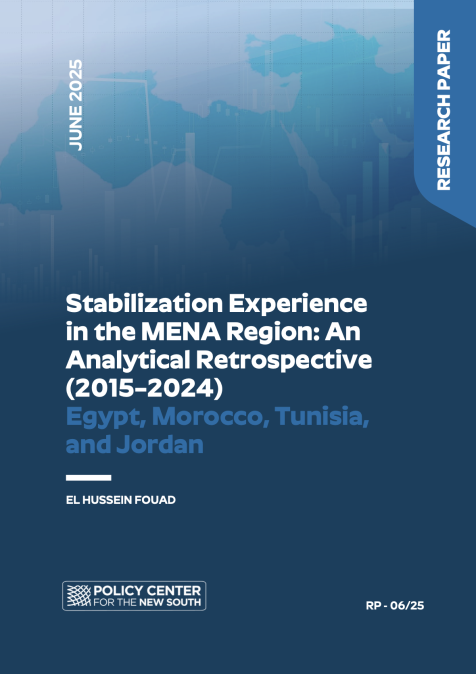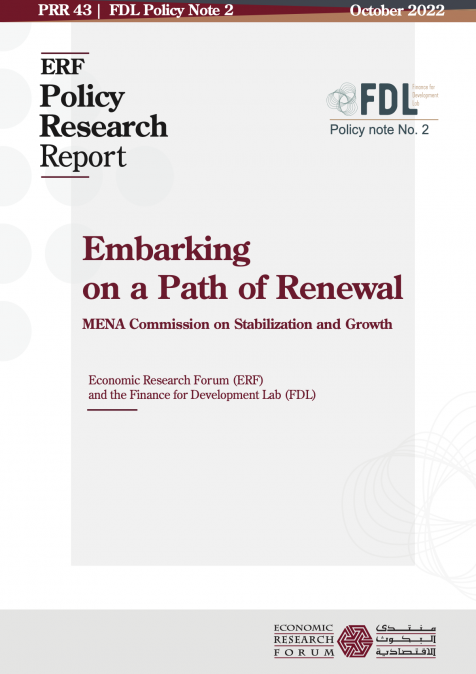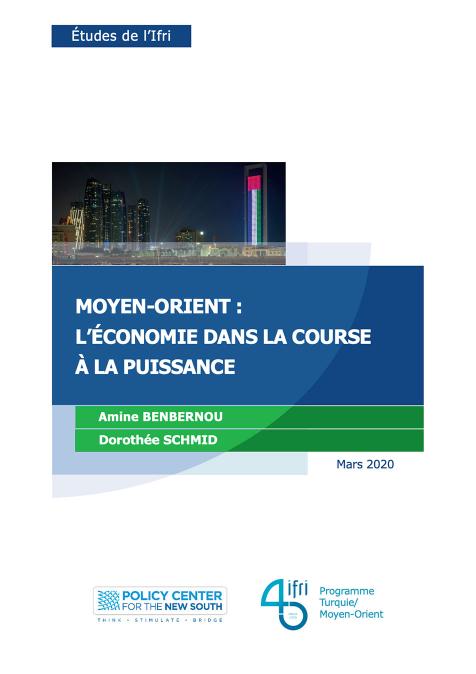Publications /
Research Paper
This paper analyses the stabilization experience in the MENA region, focusing on Egypt, Morocco, Tunisia, and Jordan over the past century. It seeks to answer the question: To what extent have these countries succeeded in achieving resilience to shocks and stresses? Key policy elements included significant fiscal adjustments—varying in scale across countries—and exchange rate developments supported by monetary policies aimed at combating inflationary pressures. The outcomes involved avoiding output collapse despite fiscal consolidation and repeated shocks, enduring stress within the financial system without systemic failure, and maintaining external viability despite lackluster trade performance.
The paper proposes macroeconomic policy recommendations across three key pillars: fiscal policy, monetary policy, and trade and industrial policy. These recommendations are tailored to the structural characteristics, reform priorities, and external vulnerabilities of each country. The experience of successful stabilization provides a solid foundation for advancing the structural reforms needed to enhance resilience and boost economic growth.










